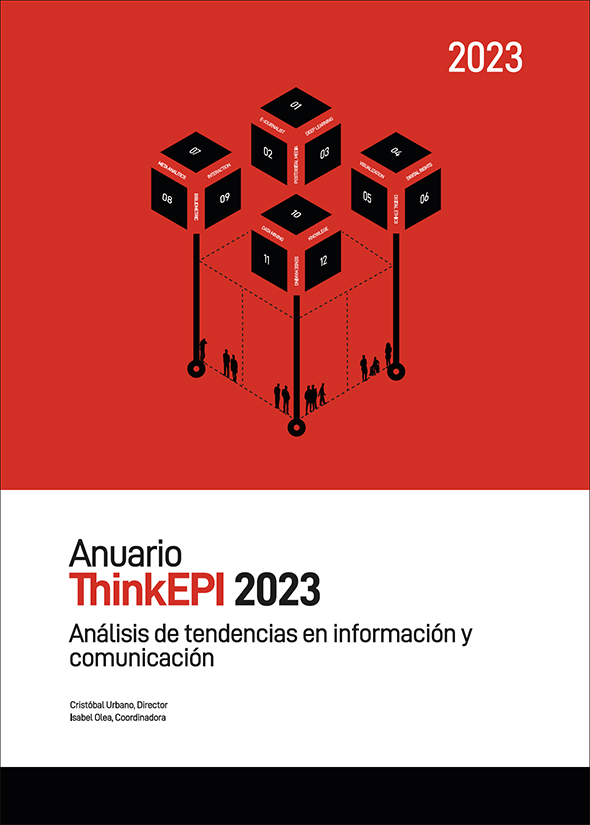La multiafiliación. Reflexiones constructivas
DOI:
https://doi.org/10.3145/thinkepi.2023.e17a15Palabras clave:
Multiafiliación, Afiliación múltiple, Colaboración, Internacionalización, Investigación, Universidad, Producción científica, EspañaResumen
En las últimas semanas ha habido controversia en torno a la afiliación múltiple debido a varios escándalos surgidos en el ámbito científico español. En España, esta práctica no está regulada y es incompatible con la exclusividad que exige la administración pública a sus contratos a tiempo completo. En el artículo se analizan los aspectos positivos y negativos que tienen para las instituciones y para los académicos que llevan a cabo esta práctica. Igualmente, se realizan una serie de recomendaciones sobre cómo podrían las instituciones generar acuerdos donde todos los actores encuentren beneficio en una afiliación múltiple y a la vez eviten el fraude. Los autores del trabajo concluyen que esta práctica, desarrollada de manera honesta y pactada con las instituciones involucradas, promueve ventajas destacadas. En el caso español, se hace necesario regular estas prácticas dentro de las universidades públicas en el marco de convenios y acuerdos individuales.
Descargas
Citas
Ansede, Manuel. (2023). "Un catedrático capta con su empresa tapadera a científicos españoles para que mientan y digan que trabajan en una universidad saudí". El país, 20 abril. https://elpais.com/ciencia/2023-04-20/un-catedratico-capta-con-su-empresa-tapadera-a-cientificos-espanoles-para-que-mientan-y-digan-que-trabajan-en-una-universidad-saudi.html
Bhattacharjee, Yudhijit (2011). "Saudi universities offer cash in exchange for academic prestige". Science, v. 334, n. 6061, pp. 1344-1345. https://doi.org/10.1126/science.334.6061.1344
Borchgrevink, Hans M.; Scholz, Beate (2013). "New concepts of researcher mobility: A comprehensive approach including combined/part-time positions". Science policy briefing, n. 49. http://archives.esf.org/uploads/media/spb49_ResearcherMobility.pdf
De-Moya-Anegón, Félix (2023). "SCImagoIber. La evolución de la producción científica Iberoamericana". Scielo 25. https://www.youtube.com/watch?v=pXUx3ZafwGw
Etzkowitz, Henry; Leydesdorff, Loet (1995). "The triple helix--university-industry-government relations: A laboratory for knowledge based economic development". EASST review, v. 14, n. 1, pp. 14-19. https://ssrn.com/abstract=2480085
Hottenrott, Hanna; Lawson, Cornelia (2017). "A first look at multiple institutional affiliations: a study of authors in Germany, Japan and the UK". Scientometrics, v. 111, pp. 285-295. https://doi.org/10.1007/s11192-017-2257-6
Hottenrott, Hanna; Rose, Michel E.; Lawson, Cornelia (2021). The rise of multiple institutional affiliations in academia". Journal of the Association for Information Science and Technology, v. 72, n. 8, pp. 1039-1058. https://doi.org/10.1002/asi.24472
Lander, Bryn (2015). "Proximity at a distance: The role of institutional and geographical proximities in Vancouver´s infection and immunity research collaborations". Industry and Innovation, v. 22, n. 7, pp. 575-596. https://doi.org/10.1080/13662716.2015.1104242
Repiso, Rafael; Delgado-Vázquez, Ángel (2023). Fallen journals 2023. Implicaciones para la ciencia española de la expulsión de revistas en Web of Science (Version 1). Zenodo. https://doi.org/10.5281/zenodo.7790968
Xin, H. (2006). "Frustrations mount over China´s high priced hunt for trophy professors". Science, v. 313, n. 5794, pp. 1721-1723. https://doi.org/10.1126/science.313.5794.1721
Descargas
Publicado
Cómo citar
Dimensions


